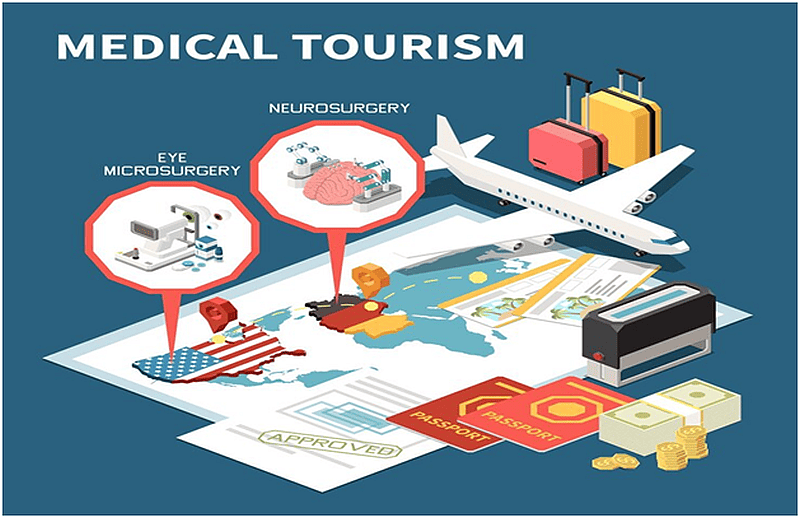Navigating the waters of international healthcare can often feel daunting and overwhelming, especially when comparing the USA to popular medical tourist destinations.
However, as more Americans consider crossing borders for affordable and potentially quicker medical treatments, understanding the legal differences between healthcare systems becomes a necessity to avoid unnecessary risks. In this guide, we’ll cover all you need to know before booking your flight.
Medical Tourism Destinations: An Overview
Medical tourism refers to the practice where people travel outside their home country for affordable or specialized medical treatments. According to estimates, around 14 to 16 million individuals globally engaged in this practice in the year 2017.
Countries like India, Thailand, and Mexico emerged as some of the most popular destinations for medical tourism due to cost-effective treatments, advanced healthcare facilities, and highly qualified professionals. Additionally, these countries offer a chance for tourists to spend their recovery periods in scenic environments post-treatment which is seen as another significant benefit.
Nonetheless, due to the differences in healthcare laws between the US and these countries, it is important to learn how to protect yourself from a legal viewpoint. partnering with a lawyer may make the journey ahead easier and offer you unparalleled peace of mind.
1. Regulation of Healthcare Providers
In the United States, healthcare providers are strictly regulated with laws enforced by both federal and state agencies. For example, hospitals must adhere to the Health Insurance Portability and Accountability Act (HIPAA) which guarantees patient confidentiality. However, in other countries popular for medical tourism like India or Thailand, while healthcare providers also face regulation, it may not be as stringent or uniquely specialized as in the U.S..
2. Patient Rights and Protections
In the US, a patient’s rights and protections are typically more comprehensive than in many popular medical tourist destinations. For instance, you have the right to receive detailed information about your health conditions and proposed treatments and also refuse any procedure at any point. However, these same protections may not apply in other countries where you might seek healthcare services, which could potentially leave you vulnerable.
3. US Healthcare Practices Should Be HIPAA-Compliant
As one of the distinguishing factors, US healthcare practices are required by law to be HIPAA-compliant. This states that all interactions, transactions, and data exchanges related to healthcare information must be secure, private, and confidential.
To achieve this, many choose to use compliant equipment and protocols, such as online HIPAA-compliant forms for collecting patient data. These interactive forms ensure that all communication aligns with the standards set by the Health Insurance Portability and Accountability Act, actively protecting patient information from potential breaches.
4. Medical Malpractice Laws
In the U.S., medical malpractice laws are strict and hold healthcare providers accountable for any negligent practice. However, in many popular medical tourist destinations such as India or Mexico, these laws might not be as stringent. This means if you experience low-quality care abroad, you might have limited legal recourse compared to what you’d have in the States.
5. Management of Pharma and Medical Equipment
In the United States, the Food and Drug Administration (FDA) strictly regulates the management of pharmaceuticals and medical equipment. However, in popular medical or dental tourist destinations like India or Mexico, regulations may not be able to accurately manage the influx, maintenance, and administration of medical tools and therapies. This key difference can directly impact patient safety, posing a potential risk element for persons who opt for treatments outside the U.S.
6. Health Insurance Coverage Policies
Last but not least, insurance coverage policies greatly differ between the U.S. and medical tourism destinations. In the U.S., health insurance often comes with high premiums and deductibles.
Oppositely, when traveling abroad for medical purposes, you may not be able to benefit from any type of insurance coverage. However, in most cases, local medical services are more affordable than they are in the US, even without insurance.
Staying Safe When Seeking Medical Services Abroad
If you are unsure how to navigate the journey ahead, there are several strategies that may help. Firstly, consider partnering with a legal team and ask your healthcare providers if there are any recommended clinics you can trust. You may also choose international hospitals and clinics that are accredited by the Joint Commission International or that offer services by internationally trained medical staff members.
Article Submitted By Community Writer




